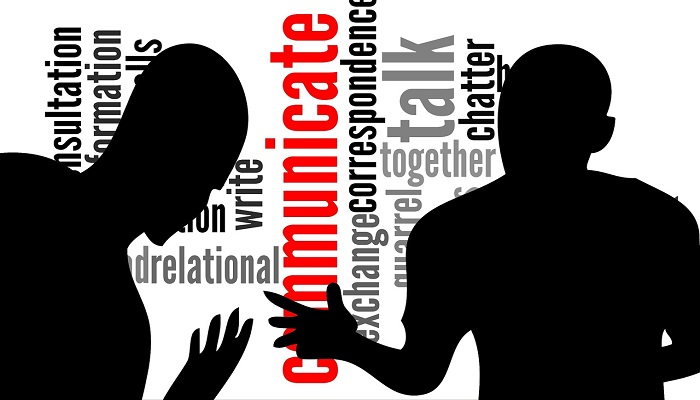

Along with the etiquette that we have to follow, the ability to communicate plays an important role in our success and can positively affect the effectiveness of our work. There are various ways to improve our communication skills.
Keep yourself informed
There are various books and CDs on this topic. Furthermore, you can certainly find on the Internet valuable tips on how to improve your communication with people. The only thing requested from you is your desire to be informed.
Be kind
Be nice with those you work with. Needless to say, you should not make sarcastic remarks or treat them in a patronizing manner. Approach others respectfully and do not forget to be polite in any situation.
Boost Your Self-Esteem
Some people find it difficult to communicate because they are too shy or lack confidence. You can sign up for a course on public speaking, which will surely help you overcome your communication barrier.
If communicating with your colleagues presents a problem for you, this is most likely due to the fact that you cannot fit in the atmosphere. That’s why it is advisable to create good relationships, even if they are only collegiate – thus you would definitely worry less.
Learn to listen
This is the first and perhaps the most important step to mastering the etiquette of the successful communication. Concentrate on the words that you hear, but at the same time try to "read" how the person before you feels. Show them that you know what they feel – thus, you will build a stronger relationship with them.
While you are listening to someone, pay your full attention to them. Cut distractions, because you would miss the signals sent by your interlocutor's body language. If you find it really that difficult to focus, try to repeat in your mind what they have just told you.
Ask questions, because in this way you would show your interest. However, be careful that your questions do not sound like a reproach and make people feel awkward. In stressful everyday situations or in case a problem has arisen, avoid questions like "Why ... ", "When ... ? " and altogether anything that can make someone feel pressured.
Show you’re interested in what you are being told. Nod, smile and from time to time, encourage the interlocutor with "yes ", "I understand ", etc.
Do not interrupt someone who’s talking.
Do not try to spin the conversation and direct it to yourself.
Do not judge the one you are listening to and do not blame them. Successful communication is possible even when a certain person is not pleasant to you. Just try to put yourself in the position of the other person.
Learn to express yourself
Try to express yourself clearly and unambiguously. This will save people around you some perplexity and mistakes coming from misunderstandings or lack of enough understanding of the tasks.
Moreover, do not keep your feelings for yourself. For example, if someone has coped brilliantly with a task, praise them. Or if you think that a project can be done in a better way, offer specific means for this to happen.
Beware of reactions
If you are under the influence of strong emotions, do not react sharply, because the probability of regretting it later is great.
When you need to make a remark to someone, do it in a way that does not sound as if you criticize them. Or rather, try to speak in a way that shows concern.
If someone is complaining to you, do not give strong opinions and do not take part in the attacks against third parties, with whom you do not have any personal contact. Just show your understanding to the person you are talking to.
Keep stress under control
Stress can have a negative impact on our communication with other people and prevent us from thinking clearly and logically. When we are under stress, it is more likely to read others’ behavior in a wrong way and to send them wrong messages with our body language. Besides, we could do something about which we’d feel sorry later.
When we are under pressure, our body sends us some signals: for example, our muscles are tight, we forget to breathe evenly ... Before continuing with what you do, try to calm down. A good way to do this is to take a deep breath, to think of something pleasant and soothing or just to find something funny about the concrete situation. Another option is to take a short walk if you have that opportunity.
The moment you feel that you and people around you become too serious, break the situation with a funny story or a joke.
Try to put yourself in the position of the person in front of you, if you feel that they bend over stress, make a compromise. If you think that you are negotiating about something that is much more important to your interlocutor than for you, retreat or soften your requirements or conditions.
Finally, we can say that communication skills are not always set in our nature - they are being learnt over time to a great extent, as part of the etiquette and protocol of communication, without which our existence is impossible. Therefore, the more efforts you make, the better the outcome from their mastering and successfully putting them into practice will be.